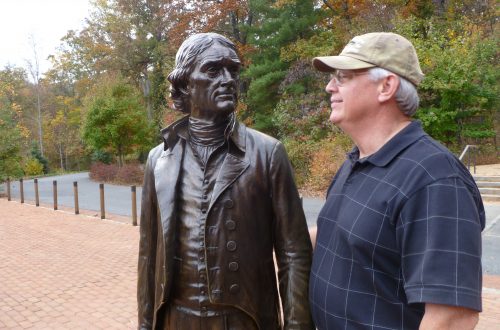Thanksgiving: Thanks and Reconciliation
While we associate Thanksgiving with Pilgrims and Native Americans, it was Abraham Lincoln who made Thanksgiving a national holiday in the midst of the Civil War. Our country was fractured, yet in his October 3, 1863 proclamation, Lincoln proclaimed a national day of thanksgiving. Not only that, he asked for prayers for “the Almighty Hand to heal the wounds of the nation and to restore it as soon as may be consistent with the Divine purposes to the full enjoyment of peace, harmony, tranquility and Union.”
Our recent election has aggravated and exposed many divisions that have been simmering below the surface in the United States. Like it or not, the nation is divided now. We can shake our heads and complain about the division or, on the occasion of Thanksgiving, we can offer both thanks to God for our blessings and also prayers for reconciliation, as President Lincoln suggested. We can join in the process of reconciliation, in pursuit of unity.
We who follow Jesus ought to be experts on this topic, because our leader is the great reconciler.
Sacrifice is at the heart of reconciliation: God the Father gave up his only Son to reconcile the undeserving world to himself (John 3:16). God the Son emptied himself and died on the cross (Phil. 2:6-8). What are we willing to give up? The right to defend our vote? The right to be offended? The right to have the election results accepted without protests?
Lauren Barbian, a mental health counselor, recently wrote:
"Unity does not start with the broken-hearted getting over it and moving on. It starts with the people in the Church who are not currently broken rushing with open arms to those who are, and saying, ‘Here am I. How can I help?’ It starts with listening and affirming and bearing witness to pain, even when it is uncomfortable or easier not to. Our country will not be unified unless we develop the eyes to see each other's pain."
Let me quote that last part again, in case you skimmed over it: “Our country will not be unified unless we develop the eyes to see each other’s pain.”
What does that look like? I believe it looks like one person sitting down face to face with someone else who feels differently about this election and hearing that perspective—without defensiveness—and expressing empathy. It starts with putting legs to Philippians 2:3-4: “Instead of being motivated by selfish ambition or vanity, each of you should, in humility, be moved to treat one another as more important than yourself. Each of you should be concerned not only about your own interests, but about the interests of others as well.”
Here are just a few of the concerned people I have talked with—and this, only within the body of Christ:
- One friend, whose candidate won the election, is disturbed by post-election violence.
- A young woman who was sexually abused feels less safe in the church after the election.
- A legal resident without citizenship is afraid of being deported.
- A man is afraid for the safety of his American wife, a member of an ethnic minority. Other racially diverse friends feel unsafe or rejected by white evangelicals.
Listening is the beginning of reconciliation. And for those who are afraid, we can move beyond listening and look for ways to make sure those fears are not realized. If a friend is feeling unsafe, be willing to say, “Call me, if you feel unsafe and need me to accompany you downtown.” For my international friend, I can’t guarantee she won’t be deported, but I can tell her how glad I am that she is here. I can offer to accompany her and help her retain a capable lawyer, if she faces a deportation hearing. We can assure the one who feels rejected that we desperately need their presence and perspective. A person of another race or a husband worried that his wife may be harassed, discriminated against or assaulted will not find it helpful to hear, “People who voted my way are getting beat up and harassed, too.”
Mutual understanding and respect for different viewpoints have been scarce in this country. Take the first step to cultivate this kind of understanding by listening to those who think differently. Don’t complain that others before you didn’t start the process. Be the agent of reconciliation to those who are hurting, regardless of whether anyone has done that for you in the past.
So, celebrate Thanksgiving with thankfulness. Feast with family and friends. Watch some football. But also determine to pursue reconciliation, starting with the body of Christ and moving outward.
Sources:
Lincoln’s Thanksgiving Proclamation http://www.civilwar.com/resources/308-speeches-a-proclamations/148534-abraham-lincoln-s-thanksgiving-proclamation.html
Counselor Lauren Barbian graciously gave permission for me to quote from her Nov. 10, 2016 Facebook post. Her ideas inspired and influenced this blog.



